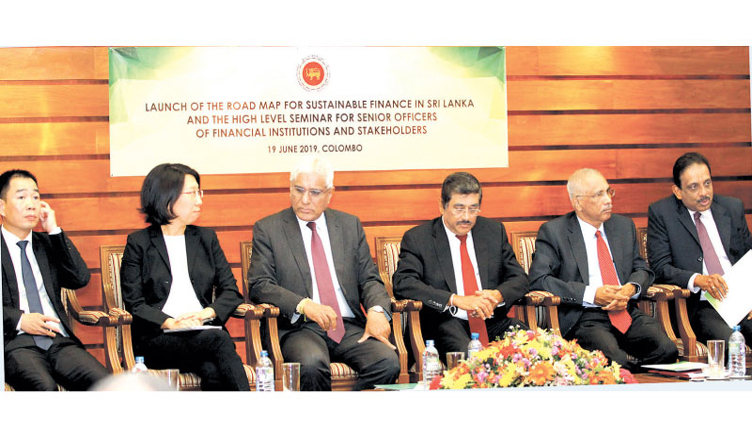(COLOMBO, LANKAPUVATH) –Sri Lanka needs to invest Rs. 30 billion over the next five years to achieve national biodiversity targets and to avoid future expenses related to biodiversity restoration and management, according to the Roadmap for Sustainable Finance report.
The country may face a 1.2 percent loss of annual GDP by 2050 if effective measures are not taken to address climate change related issues, International Finance Corporation, Country officer for Sri Lanka and the Maldives Victor Anthonypillai said at the launch of the report by Central Bank of Sri Lanka (CBSL) in Colombo yesterday.
Sri Lanka is one of the biodiversity hotspots in the world and also has been ranked second among the countries most affected by extreme weather events in 20 years since 1998. In an ambitious drive to create a more resilient, sustainable and green economy and a country for future generation, the Central launched a Roadmap for Sustainable Finance in Sri Lanka at the CBSL, Colombo yesterday.
The roadmap set out plans to develop sustainable finance in Sri Lanka, aiming to provide guidance and support to financial institutions to effectively managing environmental, social and governance(ESG) risks associated with projects they finance and increase support to businesses that are greener, climate friendly and socially inclusive.
The CBSL Roadmap for Sustainable Finance in Sri Lanka was first launched in Washington in April 10.
Anthonypillai said, globally business leaders are realizing their responsibility towards preserving the scarce resources to ensure a sustainable yet profitable future. “While the climate change takes centre stage in our lives, most stakeholders are making important strides towards guiding the global economy on sustainable path. Sri Lankan economy too has faced detrimental effects due to floods or prolonged droughts in the recent years,” he said.
Globally from an investment angel, he said, sustainable investment assets which include environmental, social, governance and social impact investments have significantly increased since 2016.
He added that these investment assets in Europe, the United States, Japan, Canada, Australia and New Zealand have reached over US $ 30 trillion by the beginning of 2018. “Sustainable finance has become a meaningful business. These assets represent close 40% of assets in these countries as of now,” he said.
IFC, a part of the World Bank Group, also served as the secretariat and technical advisor and United Nations Development Programme provided financial support through its Biodiversity Finance Initiative to the Central Bank in designing the Sustainable Finance Roadmap. The roadmap was developed in consultation with stakeholders including Sri Lanka Bankers’ Association (Guarantee) Ltd, Finance Houses Association of Sri Lanka, Insurance Regulatory Commission of Sri Lanka and Securities and Exchange Commission of Sri Lanka.




